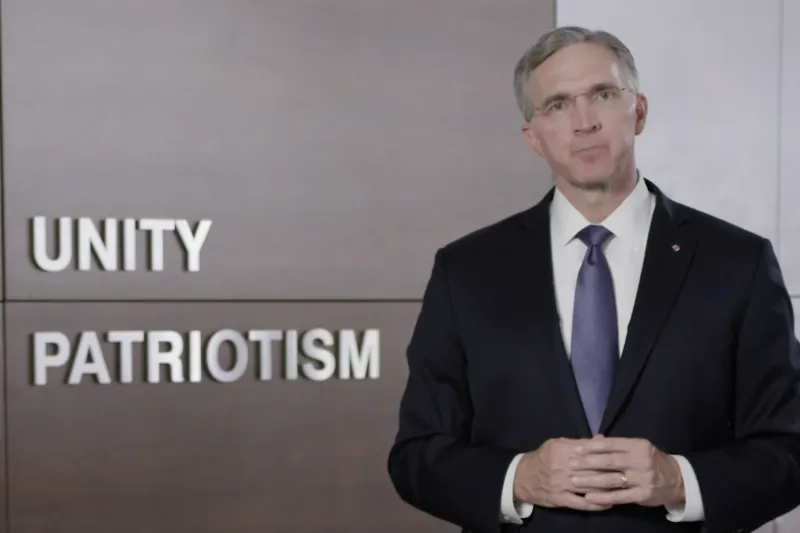
Washington, D.C. Newsroom, Apr 9, 2024 / 13:30 pm (CNA).
The Department of Justice (DOJ) arrested an 18-year-old man from Coeur d’Alene, Idaho, who allegedly planned to kill Christians and burn down churches in his town to further the mission of the Islamic State of Iraq and Syria (ISIS).
The DOJ’s criminal complaint alleges that Alexander Scott Mercurio intended to kill Christians in the nearest church, burn the building to the ground, then hijack a car and do the same at other nearby churches. He planned to handcuff his father and tape his father’s mouth shut so he could steal his guns to commit the attacks, according to the DOJ allegations.
According to the DOJ, Mercurio landed on the Federal Bureau of Investigation’s (FBI) radar when he tried to provide financial support to foreign terrorist organizations, including ISIS, when he was 17 years old. He later communicated with individuals whom he believed were affiliated with ISIS but were actually confidential FBI sources, the complaint alleges.
Mercurio allegedly told these sources he planned to attack the churches on April 8, which was two days before the end of Ramadan and the celebration of Eid al-Fitr. The DOJ also alleges that he swore an oath to ISIS and purchased materials with which he planned to carry out the attack, including butane canisters.
Mercurio was charged with attempting to provide material support or resources to a designated foreign terrorist organization and faces up to 20 years in federal prison if convicted.
“Thanks to the investigative efforts of the FBI, the defendant was taken into custody before he could act, and he is now charged with attempting to support ISIS’s mission of terror and violence,” Attorney General Merrick Garland said in a statement. “The Justice Department will continue to relentlessly pursue, disrupt, and hold accountable those who would commit acts of terrorism against the people and interests of the United States.”
According to messages allegedly sent by Mercurio to an encrypted group chat that sought to facilitate funds for Islamic terrorist organizations, the then-17-year-old said he had “very Christian and conservative parents.” He allegedly told an FBI source that his family “oppresses” him by discouraging him from being Muslim.
In December 2023, when he was expressing doubts about committing an act of terror, Mercurio allegedly told one of the FBI sources that he “just want[ed] to die and have all my problems go away.” On April 3, he allegedly met with one of the FBI sources and expressed his intent to go through with the attacks. He also allegedly told sources he wanted to be a martyr for Islam.
“This case should be an eye-opener to the dangers of self-radicalization, which is a real threat to our communities,” Special Agent Shohini Sinha of the Salt Lake City FBI said in a statement.
If you value the news and views Catholic World Report provides, please consider donating to support our efforts. Your contribution will help us continue to make CWR available to all readers worldwide for free, without a subscription. Thank you for your generosity!
Click here for more information on donating to CWR. Click here to sign up for our newsletter.








That is one scary looking dude – and the fact that he is only 18 makes it more so.
Maybe he can be converted.
Needs to regain his sanity first.